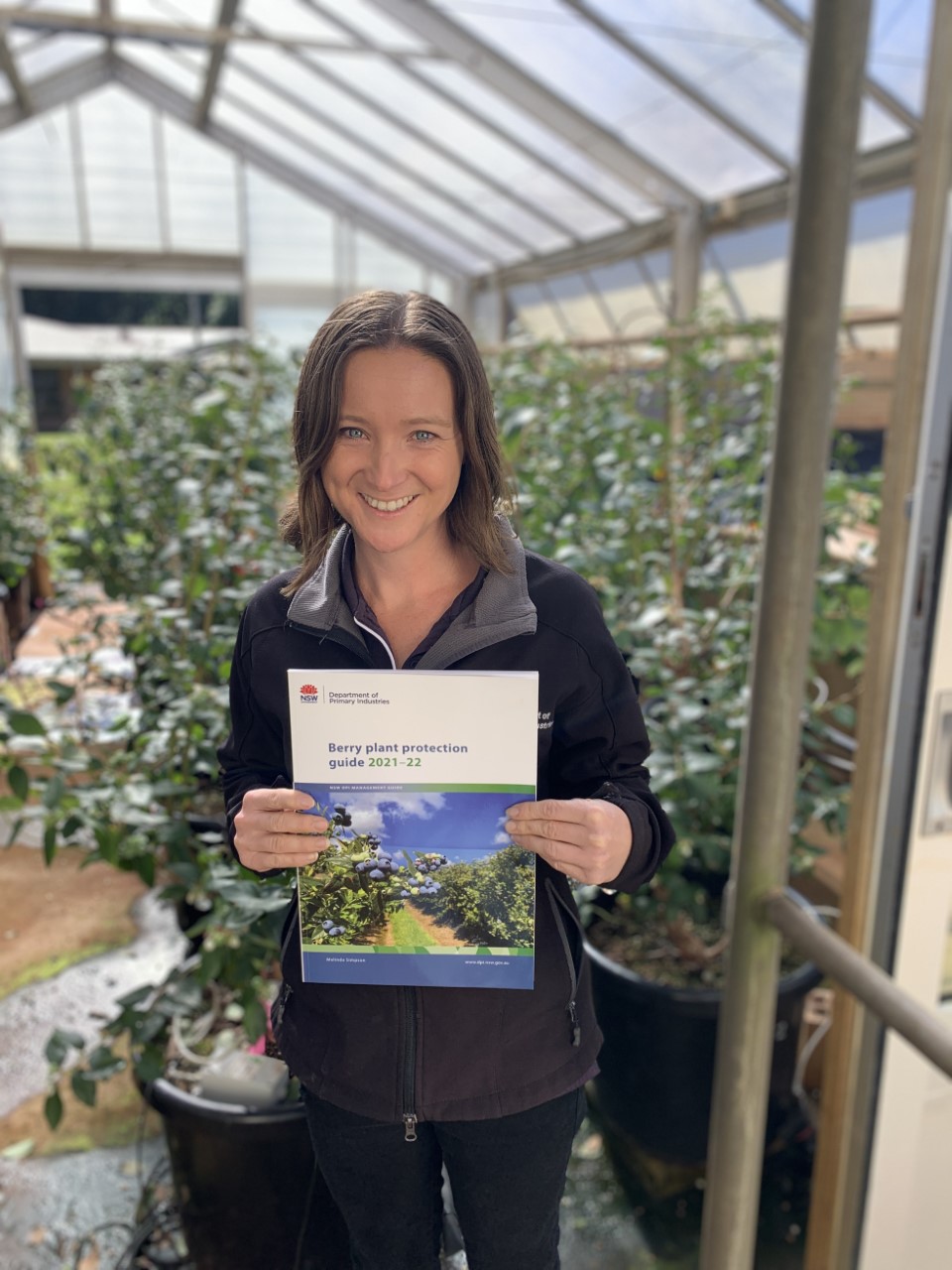
New guide to protect berry production
15 Jun 2021

The latest edition of the Berry Plant Protection guide 2021-2022 is available to assist growers with quality crop production and provide technical information on all aspects of protecting plants from major pests, weeds and diseases.
Published by the NSW Department of Primary Industries (DPI) the guide is a valuable tool for Australian blueberry, raspberry and blackberry growers.
NSW DPI Berry Development Officer, Melinda Simpson said this is the fourth edition of the Berry Plant Protection guide and has an integrated pest management focus, providing information on a range of different methods that can be used to manage pests, weeds and diseases in berry crops.
“Following the wet summer and autumn months, growers have had to be more aware of management practices for control of the fungus Thekospora minima, which causes blueberry rust,” Ms Simpson said.
“Diligent hygiene practices will minimise the spread of rust. Where possible, growers should remove all diseased wood and leaves during pruning and dispose of all fallen and pruned leaves from branches.
“Pruning allows air circulation in the canopy and reduces drying time after bushes become wet”.
Ms Simpson said the guide provides an update on the DPI field trial that is being conducted on a commercial blueberry operation on the NSW north coast to evaluate a range of organic crop protectants to control blueberry rust disease.
“The key project output will be a minor use permit for the product that demonstrates effective control of rust in blueberries and is safe to the crop,” Ms Simpson said.
“This will provide organic and conventional growers with additional options to reduce biosecurity risk and maintain crop productivity and market access.
“The guide provides an effective weed management strategy to control weeds as they compete with bushes for moisture and nutrients and can create a microclimate that favours pests and diseases.
“Research shows that competition from weeds in young, developing orchards can result in slower canopy establishment and delayed productivity.”
This edition has been co-funded by Hort Innovation using research and development levies from the Blueberry fund, Raspberry and Blackberry Fund and Strawberry Fund and fund from the Australian Government.
More information or to download the Berry plant protection guide 2021-2022 is available on the DPI website.
Media contact: (02) 6391 3686

